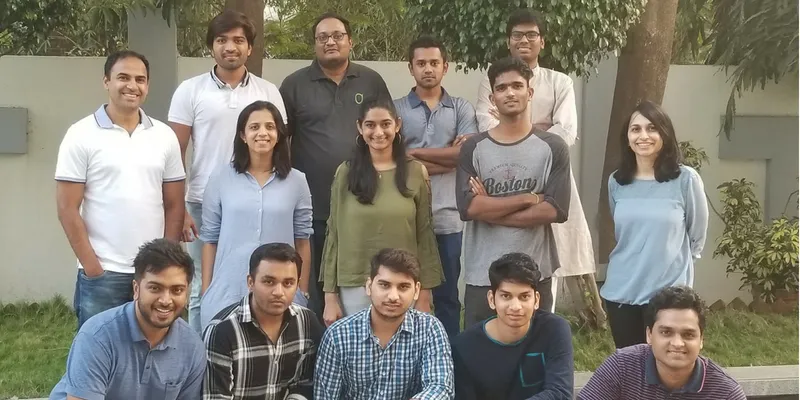How Pooja Rao deployed deep learning technology for affordable diagnostics with Qure.ai
Qure.ai is a Mumbai-based healthtech startup led by Pooja Rao, a doctor who is also a data scientist. The startup aims to make diagnostic imaging like X-rays and MRIs affordable and accessible.
Pooja Rao, when she met entrepreneur-cum-AI expert Prashant Warrier, founded Qure.ai in Mumbai in 2016. Qure.ai was founded to address the need for affordable and accessible diagnostics using deep learning technology. Deep learning is a branch of machine learning that comprises algorithms triggered by the structure and function of the brain, called artificial neural networks.

Speaking with YourStory, Dr Rao says,
In some parts of the world, radiology reads are accessible, but expensive. In others (like many parts of India), access to even the most basic clinical expertise is limited, and patients have to travel long distances to seek a diagnosis.
Qure.ai aims to address both affordability and accessibility and the pricing for automated AI reads starts at $1.5 (Rs 90).
Qure.ai’s algorithms help doctors and radiology centres be more efficient and more accurate with their diagnosis. Using deep technology, when machines perform basic image interpretation tasks, doctors can focus on spending more time with patients. This leads to better diagnostics at lower costs for the healthcare provider. The ultimate beneficiary is the patient, whose diagnoses can be done faster.
Dr Rao did her MBBS from Maharashtra University of Health Sciences, Pune, and then moved to Germany to pursue her PhD in Neuroscience from Max Planck Institute.
As a data scientist previously, she was applying machine learning to data-heavy medical problems and creating data-driven solutions for pharmaceutical and healthcare clients.
Her portfolio includes experience at GoDataDriven, KolabTree, and Genomescan BV. At the European Neuroscience Institute, she was a research scientist for two years in bioinformatics, advanced data analysis and neuroscience. She was a resident doctor with Aditya Birla Memorial Hospital where she was responsible for emergency patient care in the Intensive Care and Neurotrauma unit.
Why Qure?
The volume and complexity of diagnostic imaging (X-rays, MRIs and CT scans) has increased significantly and continues to grow. Radiologist expertise is scarce and equally expensive, which means that not all patients receive an accurate, timely diagnosis.

The healthcare startup develops deep learning solutions that automatically read and interpret medical images like X-rays, CT scans and MRIs. The company's product is a radiology diagnostic aid that is based on AI. The flagship applications are chest X-ray abnormality detection and brain CT analysis for emergency care.
Dr Rao explains,
We’re building a system that captures the combined expertise of hundreds of doctors, to create better, faster, and wider-reaching diagnostics. We have trained algorithms to perform tasks that were previously the domain of highly trained doctors. The algorithms help free up physician time, prioritise cases that need special attention, and enable more accurate diagnosis, leading to better outcomes for patients, at lower costs.
With a team strength of 18, Dr Rao and co-founder Prashant attended a number of radiology conferences and presented their work everywhere. That got them the reputation they needed, through word of mouth, which Dr Rao says is a major marketing avenue in the healthcare sector.
She attributes strong deep learning technology, and accurate algorithms trained through large, well-labelled datasets to Qure’s success. "We’re serious about our R&D and we regularly publish papers and present at scientific conferences," she adds.
Customer base and market
Qure.ai's products are designed for radiologists and other doctors, that are clinician-facing. It means the clients are radiology clinics, hospital systems, pharmaceutical companies, health insurers, public health programmes and governments.
Until today, the startup has deployed its products in 10 radiology centres within and outside India.

Dr Rao notes that over the last few years, deep neural networks have revolutionised the way machines learn. "This technology is rapidly breaking down barriers between tasks that require human expertise, and those that can be automated," she adds.
Calling it an interesting space for a number of players, including traditional big medical device companies and innovative startups that use AI to solve various healthcare problems, Dr Rao says, “We believe that the ecosystem is large enough for everyone and collaboration is important. Early adopters are key, we have been fortunate to have partnered with some of the most forward-thinking radiologists in the country for some of our products."
Qure.ai has been seeded and incubated by Fractal Analytics.
Challenges so far and the future
Deploying technology for doctors is challenging, for various reasons. In the healthcare space, algorithm accuracy and patient safety is said to be critical, which means that regulatory approvals (CE and FDA) are key milestones for healthcare companies.
Dr Rao says,
"We have just received CE certification for our chest X-ray product, and we expect to have similar regulatory clearances for our other products, including FDA by the end of this year. At the end of the day, success for Qure.ai is defined by how we can help provide diagnostics to areas without trained clinicians, how much time we can save for doctors and how many patients we can impact as a result."
Qure.ai was a part of YourStory’s Techsparks Tech 30.







